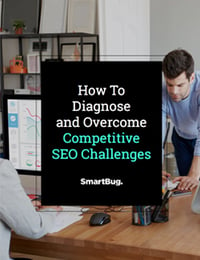
Link Building That Builds Relationships
September 27, 2018
By Ken Mafli
We all get spam. For the life of me, I don’t know why spammers bother. I can’t remember the last time I was excited to receive a tenth email from someone I didn’t know whose previous emails I had never clicked on.
And yet, they persist.
Unfortunately, link-building efforts can feel exactly like spam: Someone from company X has a webpage that would be of real benefit to your readers. Why, they would even be willing to pay to have their link put on your site. Spam.
I don’t know about you, but when I get these emails, they hit the trash before I even get to the signature line. Being an old SEO hand myself, I know the game. They figure one out of a hundred (or thousand) will say “yes” and sooner or later they will have the links they need. But in the meantime, they leave in their wake a sea of frustrated website owners and a possible ruined reputation of the people they represent.
Fortunately, for those who are link building, there is a better way. It involves finding a path where you and the website administrator both benefit from the exchange. At the end of the day, you want relationships, not just links. In order to accomplish this, you must go the extra mile to ensure that you are making it a win-win for everyone. Follow along for some helpful tips to build links the right way.
Guest Blogging
Guest blogging is the most obvious when looking for a reciprocal relationship. You give a website much-needed original content, and they allow you to place a link or two in the article you write. Easy, right? Well, not really. At the end of the day, this is about building a relationship. And relationships take time.
Here is what I mean. The website you want to guest post on should have standards. They have crafted a certain voice that appeals to their demographic and they care (or, at least, should care) about how your article fits in with their overall tone. As a guest author, you should take the time to read (or at least thoroughly review) a handful of articles to make sure you understand how to talk to their audience.
From there, you should be willing to take any editing or critiques they may have. Many times, the websites with the highest domain authority will have the highest standards, so be willing to put in the work and prove that your article is worthy of their audience.
Broken Link Outreach
This technique has been used to death by the SEO community. The tactic is where you find broken links on other websites and then reach out to the webmaster with a suggested replacement link, yours. The problem is that webmasters typically get a lot of these kind of emails. You know what it begins to feel like? Spam. After a while, website owners just stop paying attention.
That is why, when conducting this kind of campaign, I don’t always ask for a link. You read that right—I don’t ask for a link many times. I reach out with the idea of being helpful and wait for them to respond. If they respond, I let them know of possible replacements (one of which is mine). But I mainly try to build a connection. I want to find a way that we can be of mutual benefit to each other, whether that is guest posting on their site or seeing if I can quote them in an upcoming influencer spotlight post I am writing. Whatever it is, I want to add them to a growing list of good folks that can rely on me, and I can rely on them in return.
Influencer Outreach
One of the best ways to find backlinking opportunities is to conduct a backlink gap analysis with a few of your competitors. By finding high domain authority websites that link to one or more of your competitors, but not you, you are able to find other websites in your niche that should, in theory, be linking to you. But convincing them to link to you is another story. Again, so many SEOs are bombarding these sites with link requests, your email will just be another failed attempt.
Instead, why not try to connect with them socially first. Get to know what they are talking about. What conversations can you join in on? What gets their community fired up?
By connecting with them on Twitter, LinkedIn, Facebook, and so on, you will begin to build a rapport. By connecting with their community, you can more clearly see how a strategic alliance could benefit you both. As an example, let’s say you are targeting 20 websites that you would love to get a link from. You are able to strike up a conversation with 10 of them and they are all talking about similar topics. You decide that their collective voices would go great in an expert roundup article. You pitch to them and eight say “yes.” You build, publish, and promote that article. They promote it as well, and everyone sees a boost in referral traffic from it. If the experience was a good one, many times those experts will naturally begin to link to you in articles they write, without you even needing to ask. Why? Because of the relationship you put first.
Conclusion
These are just a few ideas in a sea of great relationship-building ideas. The truth of the matter is this: Google’s ranking algorithm was originally set up to track people’s influence. The more links a site had, the more influence they, in theory, had. Over the years, people have tried to game this system. You know who has never had to game the algorithm? People who are building relationships and strengthening influence. If you put in the hard work up front, you will never have to fear an update from Google, because the links you build are naturally occurring and are a result of people trusting you enough to share you with their readers.
Get out there and build relationships, not just links.

About the author
Ken Mafli was formerly a Marketing Consultant. He is a guru of the Inbound methodology but also uses paid search, social media, and PR to achieve overall goals. Read more articles by Ken Mafli.









